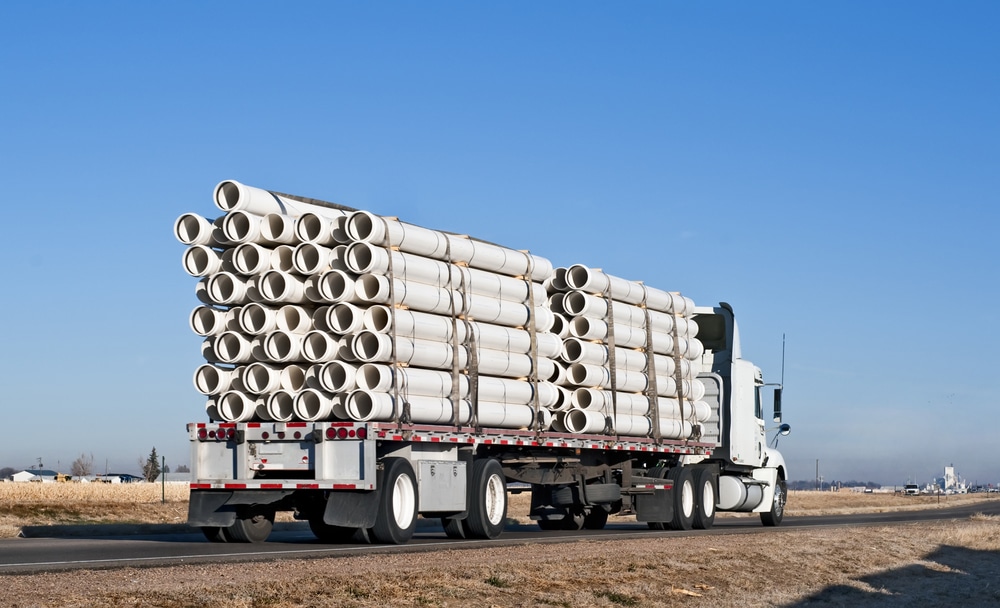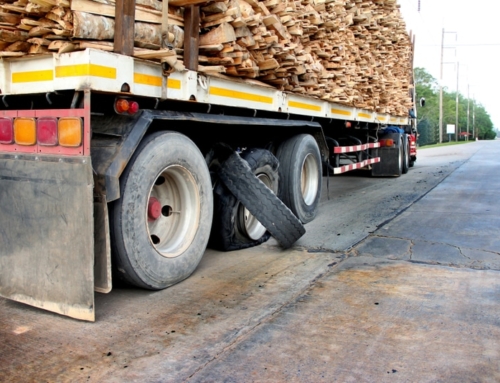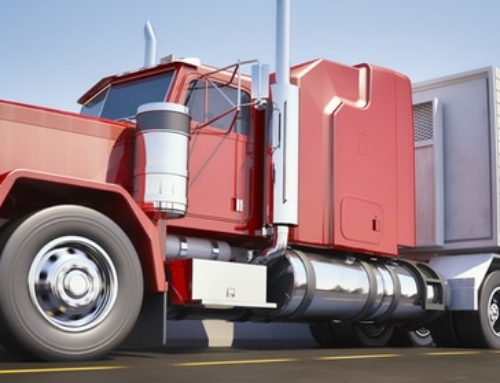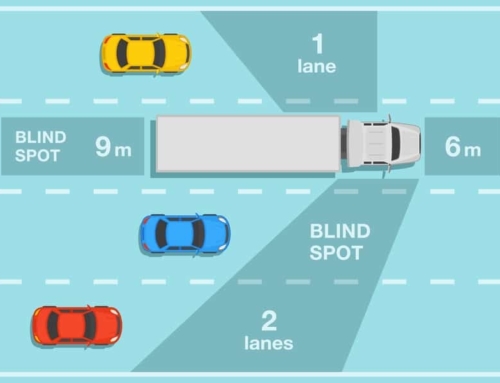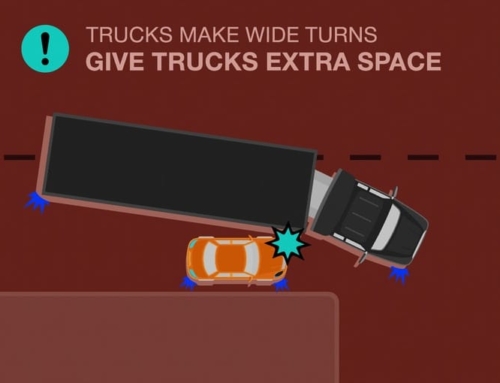If you read the news frequently, you have likely picked up on concerning accident trends. More specifically, you might have noticed that truck accidents in Texas have become more common. Unfortunately, the numbers tell a similar story.
According to the Texas Department of Transportation, accidents involving trucks and tractor trailers climbed to 53,149 in 2021. That number is up from 2020, when the total of truck accidents recorded was 46,219. In 2019, the total number of truck crashes in Texas reached 54,426.
Improperly loaded cargo accidents can be particularly troublesome. In this article, we will discuss why poorly secured cargo can be a hazard that endangers many motorists.
FMCSA Cargo Securement Rules
Are you securing your cargo properly? Before we get into the accidents caused by poorly loaded cargo, let’s first get a refresher on what proper cargo loading looks like. The rules set by the Federal Motor Carrier Safety Administration determine how cargo should be loaded and secured on trucks.
Standards for Securement Systems
Securement systems used on large trucks should withstand some acceleration and deceleration. The system you are using should hold even when subjected to 0.8g deceleration moving forward and 0.5 g acceleration moving backward. The securement system must also keep the cargo in place despite 0.5g acceleration going laterally.
Using Tiedowns
Any tiedowns used in trailers with rub rails must be located inboard the rub rails if such a setup is possible. Tiedowns must also have edge protection if they are likely to sustain abrasions if they come in contact with the cargo.
Cargo loaders must use two tiedowns if a piece of cargo measures 5′ or less in length but still weighs over 1,100 pounds. Two tiedowns are also required if a piece of cargo is longer than 5’ but less than 10’.
Rolling Prevention
The FMCSA also has rules for securing cargo that may roll inside the trailer. Those articles of cargo should be secured using chocks, wedges, and any other piece of equipment that can prevent them from rolling. The items used to prevent rolling must also not be loose while the truck is in motion.
Examples of Loading Oversights and Mistakes
Mistakes made while loading a truck with cargo can lead to severe accidents. The loading mistakes that trucking and shipping companies must watch out for are detailed below.
Using Defective Securement Systems
In the previous section, we highlighted the standards set by the FMCSA for truck securement systems. Using anything inferior to the securement systems recommended by the FMCSA can spell disaster for truck operators.
Securement systems incapable of handling deceleration and acceleration may also struggle to keep their cargo in place. For example, not using enough tiedowns to keep cargo stable can lead to heavy items sliding around the trailer. Operators need to worry about the same thing if their trucks lack features that can consistently prevent cargo rolling.
A defective securement system may also endanger other motorists without affecting the truck driver. For example, pieces of cargo, such as logs and steel beams, that fall off a truck in motion can hit vehicles nearby and cause serious injuries.
Trucking companies must secure high-end securement systems for their commercial vehicles. However, they risk their drivers by refusing to invest in those securement systems.
Overloading Cargo
You have probably already guessed that overloading a truck is dangerous. The danger stems from the heavy load making the truck less stable. As a result, if the driver takes a wrong turn, their heavy trailer may cause them to crash.
Overloading is also risky because it can wear down a truck faster. In addition, truck components are more likely to blow out if they constantly deal with excess cargo weight.
Improperly Distributing Cargo Inside the Trailer
The improper cargo distribution inside a trailer can be a serious safety hazard. If one side of the truck is heavier, the driver may have difficulty maintaining control.
Poorly positioned cargo can also be problematic if it affects the driver’s view. Therefore, loaders should be mindful of how they arrange the pieces of cargo, so the driver’s vision remains unaffected.
Who Is Liable for Improperly Securing Cargo?
After investigating the accident you were involved in, the police officers determined that it was due to improperly loaded cargo. You and your lawyer now understand why the accident took place. Now, you must determine which party or parties should be held responsible.
Although the accident was due to improper cargo loading, the driver is not absolved of responsibility. The driver should ensure their cargo is loaded correctly before hitting the road. Failing to do so opens them up to potential litigation.
The people in charge of placing cargo inside the truck can also be liable. Their inability to properly arrange or secure the load could be the reason for the crash. They may need to answer for their mistake by paying compensation.
Do not disregard the trucking company’s possible role in all of this. Trucking companies are responsible for maintaining the securement systems inside their vehicles. Therefore, if the accident is linked to a faulty system, the trucking company must answer.
Note that you can seek compensation from multiple parties following your truck accident. Work with a lawyer who can build strong cases against all the guilty parties if you want to receive fair compensation.
Accidents Caused by Improperly Loaded Cargo
Improperly loaded cargo accidents can be destructive and deadly. However, the exact accident type may vary based on the circumstances leading up to the crash.
Jackknife Accidents
A jackknife accident occurs when the trailer pushes the truck cab to the side while the vehicle is in motion. When that happens, the truck and trailer resemble the shape of a partially open jackknife.
These accidents are typically due to trucks taking bad turns. However, the truck taking a bad turn may also have something to do with its improperly loaded trailer.
Sideswipe Accidents
Poorly loaded trailers are hard to control. Even if the trucker follows correct driving practices, they may still lose control of their trailer because it is not loaded correctly.
An out-of-control trailer can cause all kinds of problems on the road. For example, the trailer may clip another vehicle while the truck is passing it. That type of incident is known as a sideswipe accident.
Sideswipe accidents are especially dangerous because there is no telling where the trailer may go. As a result, the truck driver must come to a complete stop to prevent the trailer from doing significant damage.
Rollover Accidents
A truck rollover accident involves the truck tipping to one side and flipping over. It may flip once or multiple times before coming to a stop.
Rollover crashes can be caused by different factors, with improperly loaded cargo being one of them. Overloaded trucks are more susceptible to these crashes.
These accidents are arguably worse than both jackknife and sideswipe crashes. Because of how the truck cab moves, the driver’s chances of surviving are low. On top of that, trucks rolling over can affect multiple lanes of traffic. Motorists minding their business can be put in grave danger by a truck rolling over.
18 Wheeler Accident Attorney in San Antonio
The experienced San Antonio truck accident lawyers at Barrus Injury Lawyers have handled more than our fair share of semi-truck and 18-wheeler accident cases in Texas. These cases can be exceedingly complex, but we possess the experience and knowledge to win them for our clients.
Were you recently involved in a large truck or 18-wheeler accident? If so, do not hesitate to contact if you need assistance.
Additional Resources For Truck Accident Victims
Truck Accidents in the San Antonio News 2023
Head-on truck accidents
Truck blind spot accidents
I-35 Truck Accidents
